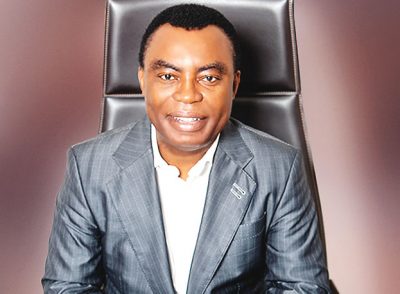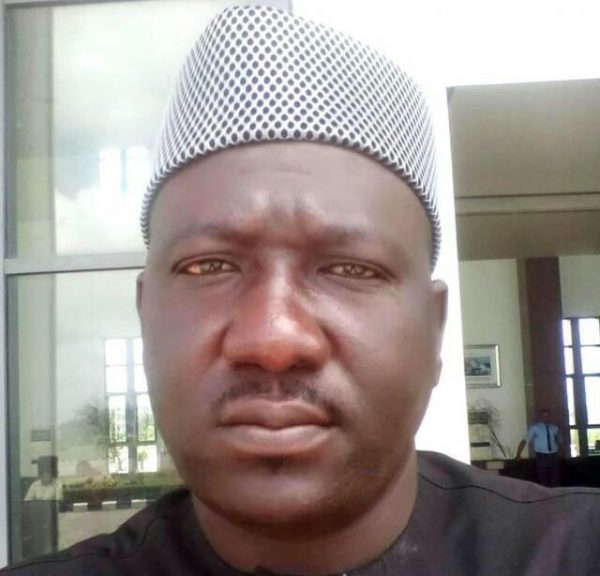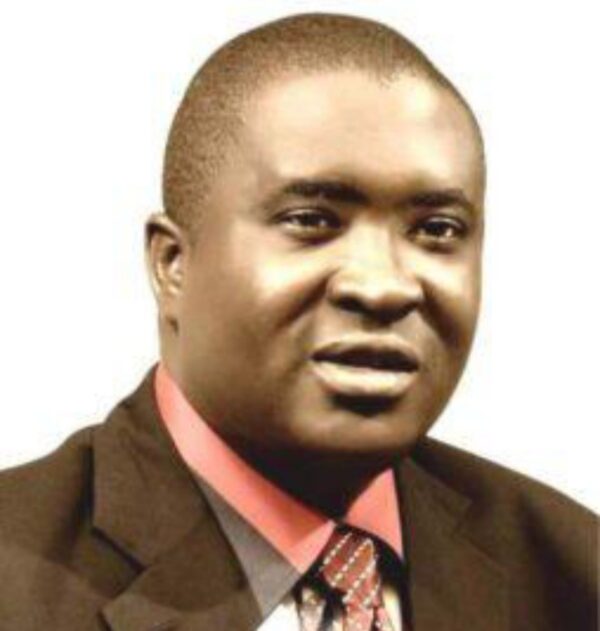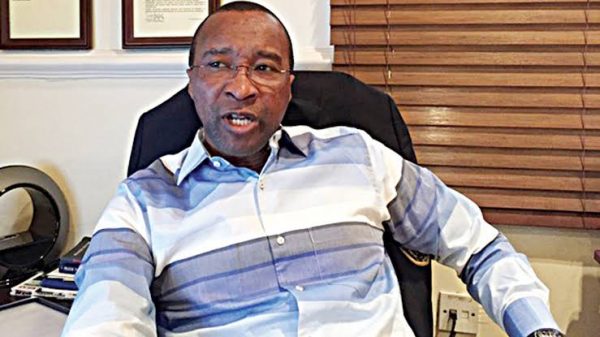Private Monopoly Is Killing Nigeria’s Economy- Prof. Oditah

By Kenneth Jukpor
Professor Fidelis Oditah, a Senior Advocate of Nigeria (SAN) and legal counsel to Lagos Deep Offshore Logistics Base (LADOL), gives a heart-felt interview with MMS Plus on the maritime sector under President Buhari’s administration, highlighting the failures in policy implementation, implications of nonchalance in public service and the recurring menace in Nigeria ‘corruption’.
Enjoy it:
How has the maritime sector fared in the last two years under the President Mohammadu Buhari leadership?
The maritime sector under the President Buhari administration has been challenged. A lot of the problems that the sector confronted have been induced by regulatory and policy failures. The sector like many other sectors in Nigeria is beset by corruption and incoherent government policies. However, the maritime sector is one that thrives on clear and coherent policies because the nature of maritime investments is long term.
For example, if you invest in the port infrastructure, you expect that it would take a number of years to get the returns on your investment but if there is a policy summersault during your investment, you find that you have made your projections and investments on policies and assurances which now prove to be wrong. If you are an international investor making Foreign Direct Investment (FDI), you might ask the government for stabilization provision because you made your projections and investment based on certain regulatory and fiscal policies and the government should be able to give you some assurance that there is stability to ensure the policies do not change and if it does change the government should compensate you. Foreign investors have been able to extract this from the government but the indigenous investors have not been able to. As a result of this, the maritime sector has under-performed.
Although the economy itself is undergoing a recession, which means the extent to which people make use of the ports for imports or exports reflects the low level of economic activity in the nation. Nevertheless, the maritime sector has been challenged more than usual by the desire of some individuals to create a private monopoly at the expense of the nation and its citizens.
The Calabar port concessionaires have continued to lament that the draft level that the Nigerian Ports Authority (NPA) promised to maintain hasn’t been achieved ten years after the concession, while they invested massively on the premise that the ports would be dredged to receive larger vessels, but this hasn’t happened. How do we avoid such problems in future?
The biggest problem we have as a nation is our public service. Our public service isn’t fit for governance because the government has no willingness to implement its own objectives. It is not that the government has no money to achieve the draft level that it promised the concessionaires but the issue is that after collecting money from the concessionaires, the government just doesn’t care. They think, “we are the government, nobody can question us or fight us, nobody can arrest us and we can clamp down on everyone” and this is an attitude that is disrupting the system because by the time other countries are trying to be competitive to attract and encourage investors to come in; we are giving the investors in Nigeria an attitude of indifference. The Nigerian government is saying, “We don’t care”; what happens when we say we don’t care? The cargo goes elsewhere to nation’s where the government cares and the Nigerian masses suffer grossly.
Look at all aspects of life in the country; has the government been able to enforce any of its laws? Isn’t there a law against drink-driving, abortion, corruption, theft, etc. Yet all these thrive in Nigeria. So, you shouldn’t be surprised that the Nigerian government doesn’t deliver on the promise that it made to the port concessionaires.
This is a collective failure of the government otherwise they would have allocated the money for the dredging and ensured that it is completed within a stipulated time. The Abuja runway repairs was completed in six weeks because it affected those in power. This shows that when there is intent to do something, the government can actually do it.
Those who are enemies of the government can also be arrested and even withheld after the court has said release them. It is a cynical government but that is part of the problem in developing nations. There is no reason why the government shouldn’t deliver on the promises they made to concessionaires 10 years after. There is no reason why the government should owe people for 7-10 years. If you argue that in the case of road infrastructure the contractors inflated the bill, how about the legal services? Why should the government owe N5million for 10 years? The N5million in 2007 doesn’t have the same value in 2017 and the government isn’t going to pay with interest.
The Nigerian environment is very challenging and that is why for people who want to operate in this environment, they try to ensure that they are close to the government to bribe and stay close to the corridor of power. However, from time to time we must stand up against the government and resist their attempts to ruin us.
There are applications some of my clients made for the government to give its consent since four years ago. Four years have passed and the currency has depreciated, the people who bought real estate to develop in Nigeria for the public good couldn’t get planning approval from Lagos State unless the Federal Government consented to the transfer. The Federal Government has taken four years and it has still not consented. You see how the government intentionally inflicts loss on private people. If you had millions of dollars to invest, why would you choose Nigeria when there are several other countries that also need such investment?
Look at South Korea; they were in the same position like Nigeria in 1960. Today, Samsung is competing with Intels in the global market. Samsung produces phones, television sets, refrigerators and several other electronic gadgets. South Korea also has Hyundai motors; Kia motors, among others, but where is Nigeria?
How has Nigerian economy fared with indigenization and privatization?
When I just graduated from the university in the early 1980’s one naira was exchanged for one pound and a naira was worth about one dollar plus twenty cents. How did we manage the system which was handed done to us by the colonial masters? As cunning and corrupt people we implemented indigenization decree. Like Idi Amin who said that he had a dream that if the economy of Uganda must prosper, the economy must be in the hands of Ugandans and therefore the Asians must leave. He expelled all the Asians and in no time the Ugandan economy collapsed. The same thing happened in Zimbabwe and in Nigeria through indigenization.
Most of the people that received assets as a result of indigenization ended up running them down or selling them and relocating abroad to live with their families. They ended up living large like the average Nigerian and African likes to, but the economy of their nations crumbled. If the foreigners have been allowed to continue their businesses, they would have invested more in the country, created more jobs to raise the standard of living in the country and boost the Gross Domestic Product (GDP) of the nation.
It is very funny that corrupt people actually think they are smart. For instance, they ask people to bid competitively for something and after everyone has bided, they go behind to see the figures and tell a particular person to raise his bid to certain level to be the highest. Then, they come to the public to open the bids and say this person won by 5naira. Such system can never prosper.
It is the same me that operates in the Queens Council in London and I was telling the Court of Appeal today that I have never seen this type of civil justice and they knew what I was talking about because they knew I was in Queens Council in England. Here I am (Senior Advocate of Nigeria) and we said we inherited their system, but ours is shrouded in corruption, incompetence and nepotism.
What is the way forward to salvage the nation’s ailing economy and citizens?
As a public analyst I feel very pained about what I see in this country because I know that we can be much better. The problems in Nigeria can be solved but it requires not just capacity but people who have the interest of the nation at heart. You find good laws and policies in the country but at the point of implementation when someone has to be sacked or jailed, you find that the person gets a letter from the presidency to sabotage the system. This explains what I mean by unwilling government officials that wouldn’t stand by the laws and policies of the country.
We can all accept that the global price of oil or any commodity can decline. This is a commercial risk that we have to take but the risk we shouldn’t take is that someone abuses the system or sits on an application for four years and does nothing about it. Or someone would sign an agreement with you and the government refuses to implement its part knowing that you have borrowed and invested your resources on the basis of that agreement and nobody would take responsibility for your loss.
Nigerians must take steps to ensure that our electoral process works because that is the only way to hold these people accountable. If we are not able to hold them accountable through the ballot box, there is no other way to ensure that there is an open and effective government.
Nigeria can have over 200 people with private jets but it means nothing for a country that has about 180million people. It doesn’t even matter if 1000 people have private jets as it only means that they are the people who have been able to steal from the system. The true measure of a society is the middle class. How many people are in the middle class, because they are the engine of any society?
Most of the captains of industry in Nigeria today have thrived on private monopoly; the list includes the likes of Aliko Dangote and Raymond Dokpesi, who have created a lot of employment but they have equally destroyed a lot of industries as well. For instance, a bag of dangote cement goes for N3,000 but I doubt if the cost of production is up to N1000. There is no competition and no regulation on the price. That is why we have to be careful about his foray into petroleum refinery. Would it be cheaper or is it a very big private monopoly waiting to happen.
Almost every sector in Nigeria has been channeled for the benefit of a few people. The oil subsidy scandal, forex scandal, agriculture, etc., is one scam after another.






